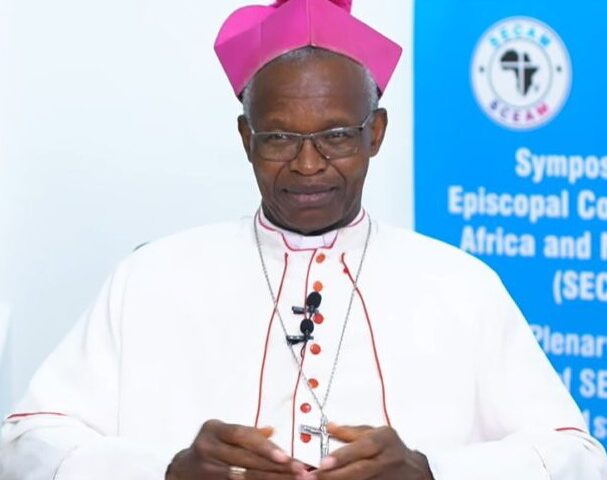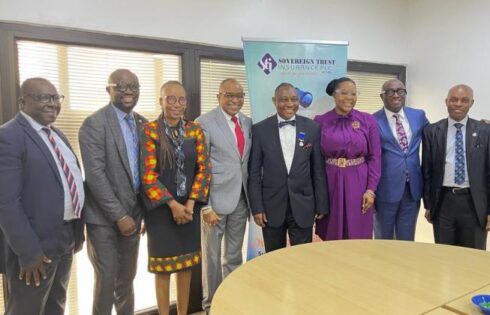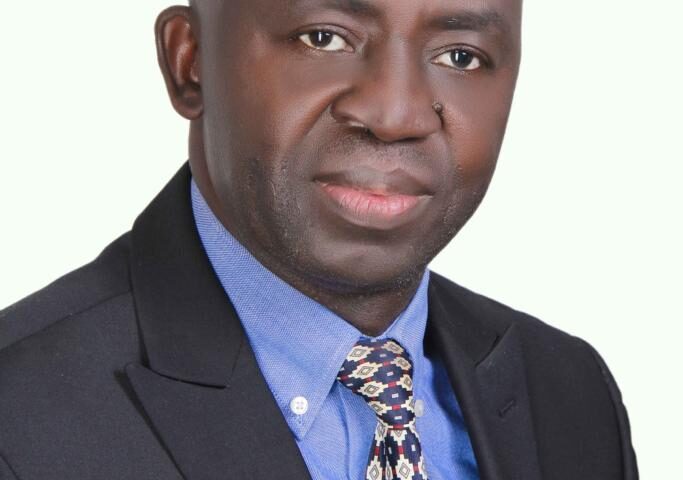By Pastor Favour Onoja
“And I saw a new heaven and a new earth: for the first heaven and the first earth were passed away; and there was no more sea.
And I John saw the holy city, new Jerusalem, coming down from God out of heaven prepared as a bride adorned for her husband.
And I heard a great voice out of heaven saying, Behold, the tabernacle of God is with men, and he will dwell with them, and they shall be his people, and God himself shall be with them, and be their God.
And God shall wipe away all tears from their eyes; and there shall be no more death, neither sorrow, nor crying, neither shall there be any more pain: for the former things are passed away.
And he that sat upon the throne said, Behold, I make all things new. And he said unto me, write for these words are true and faithful (Revelation 21:1-5)”
Welcome to the Month of August, 2022.
Our Focus for this Month is “BEHOLD. I MAKE ALL THINGS NEW”
In this Month, you shall experience “New Things And New Wine” in your walk with God in Jesus Name.
In the midst of devastation and destruction ravaging the earth whereby nations are at war with each other; where the World is in a state of political instability, social and economic depression, famine, poverty, insecurity, natural and individual chaos, mass destruction, death and hopelessness; the Bible said “Remember ye not the former things, neither consider the things of old. Behold, I will do a new thing; now it shall spring forth; shall ye not know it? I will even make a way in the wilderness, and rivers in the desert (Isaiah 43:18-19)”
In all these happenings, God is interested in the welfare and well-being of His people. He shall wipe away all tears from your eyes; there shall be no more death in our land, nations; neither sorrow nor crying nor destruction and devastation. There shall be no more pain, poverty and famine in our land: for the former things are passed away and behold the new has come! (Revelation 21:4-5).
God is set to do new things in our lives and nation this Month. See it, Embrace it and Rejoice!
WHAT ARE THE CHARACTERISTICS OF NEW THINGS?
1. When He wipes away all tears and turns our mourning into dancing (Revelation 21:4; Psalm 30:11; Isaiah 35:10; 65:19);
2. He turns our wilderness into a fruitful field (Isaiah 32:15);
3. Death and destruction are averted or stopped (Revelation 21:4);
4. He instructs and leads us (Deuteronomy 32:10-14);
5. It’s a season of Answers (Jeremiah 33:3; Psalm 143:1; 1Kings 9:3; 2Kings 20:5; 2Chronicles 7:12; Isaiah 38:5);
6. It’s a season of manifestations (Luke 1:80);
7. It’s a season of fulfillment of prophesies (Matthew 21:1-7; Luke 4:16-18; Jeremiah 29:10);
8. It’s characterized with abundance and supernatural supplies (1Kings 18:41-45; 2Kings 7:8-20; Joel 2:26-27);
9. It’s the season of the outpouring of His Spirit (Joel 2:28-29; Psalm 92:10);
10. It’s a season of Restoration and Revival (Joel 2:22-27; Isaiah 35:1-10; Ezekiel 37:1-14; Numbers 17:1-10);
11. It’s a season of healing, deliverance and wholeness (Revelation 21:4; Ezra 9:13; Psalm 18:50; Obadiah 1:17);
12. It’s a season of overwhelming favour (Psalm 44:3; Genesis 29:17; 39:6; Exodus 3:21; 12:36; Deuteronomy 33:23; 1Samuel 2:26; Esther 2:15; Job 10:12; Psalm 5:12; 30:5, 7; 1Chronicles 26:10);
13. It’s a season of remembrance (Genesis 30:22; 41:1-14; 8:1; 9:15-16; 19:29; Exodus 2:24; 6:5; Esther 6:1-14);
14. It’s a season where He raises Kings, Authorities and People to see to your welfare and well-being (2Kings 8:1-6; Jeremiah 37:21; 2Samuel 9:1-13);
15. It’s a season characterized with honour and dignity (Esther 6:1-14; Genesis 41:40-46);
16. It’s a season of salvation and harvest of souls (Isaiah 61:10; 1Peter 1:9; Matthew 13:39);
17. It’s a season that is characterized with showers of blessing (Ezekiel 34:26);
18. It’s a season of revelation (Revelation 4:1-11);
19. It’s a season of intense worship (Genesis 22:5; Exodus 34:8, 14; Psalm 132:7; 138:2; Zechariah 14:17);
20. It’s a season of hunger for righteousness (Matthew 5:6; 6:31-33; Zechariah 8:23);
21. It’s a season of judgment upon the enemies (Jeremiah 22:16; Psalm 82:1; Job 21:22); and
22. It’s a season characterized with unity (Psalm 133:1-3; Ephesians 4:13).
HINDERANCES TO NEW THINGS
1. Dwelling in the past (Isaiah 43:18-19; Psalm 137:1-7);
2. Regrets (John 11:21);
3. Doubt and unbelief (Matthew 28:17; 13:58; Hebrews 3:19);
4. Unforgiveness;
5. Lack of Revelation (2Corinthians 3:14; 4:4; John 12:40; 1John 2:11);
6. Compromise; and
7. Unfaithfulness (Matthew 25:14-31).
PROPHESIES:
In this Eight Month, I decree and declare the termination of death, waste, famine and destruction in your life and in our nation, in Jesus name, Amen!
Upon this mountain this Month, God shall raise Saviors for our nation (Obadiah 1:17).
I decree and declare that this month shall give birth to new things (vision, dreams, ideas) in your life, in Jesus Name;
I decree fresh encounters, revelation and Oil upon your life and destiny in Jesus Name.
PASTOR FAVOUR ONOJA
GLOBAL IMPACT REVIVAL ASSEMBLY INTERNATIONAL, ABUJA, NIGERIA
Tel: +234(0)8055842594
+234(0)7034893375
H A P P Y N E W M O N T H !!!










